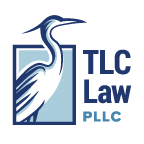Many people ask me my “win” percentage. When it comes to family law cases, this is a complex question because “win” is a relative term. What is considered a win in terms of dividing the community estate upon divorce?
“What is a win in the battle over possession and access of a child?”
Of course, I want my client to obtain the best result possible. But I also know, and my clients are quickly brought up to speed on this, that win is a relative term. And it’s based on realistic expectations. I can do everything in my power to convince a judge (or occasionally jury) to do everything my client desires. But when it comes down to it, all good attorneys know that cases are decided based on a number of factors. The skill of an attorney is certainly a factor, but the most important factor, in most cases, is having “good facts.”
When attorneys speak of good or bad facts we are talking about whether the evidence is on our side or not; that is, is there strong evidence to support our client’s claims based on the applicable law? I work with my clients to try and uncover and develop all favorable evidence, while diminishing unfavorable evidence. But neither I nor my clients can conjure up helpful facts out of the blue, nor change harsh reality. It is my duty to work ardently to achieve my clients’ ends, but not at the expense of pulling the wool over their eyes.
Texas attorneys are encouraged to adopt The Texas Lawyers Creed, handed down by the Supreme Court, which states, in part: “I will be loyal and committed to my client’s lawful objectives, but I will not permit that loyalty and commitment to interfere with my duty to provide objective and independent advice.” I take this seriously, as do nearly all attorneys from what I can tell. But in family law it is especially important, and I make it a point to explain to my prospective clients that I will always provide objective advice…even when they don’t want to hear it.


